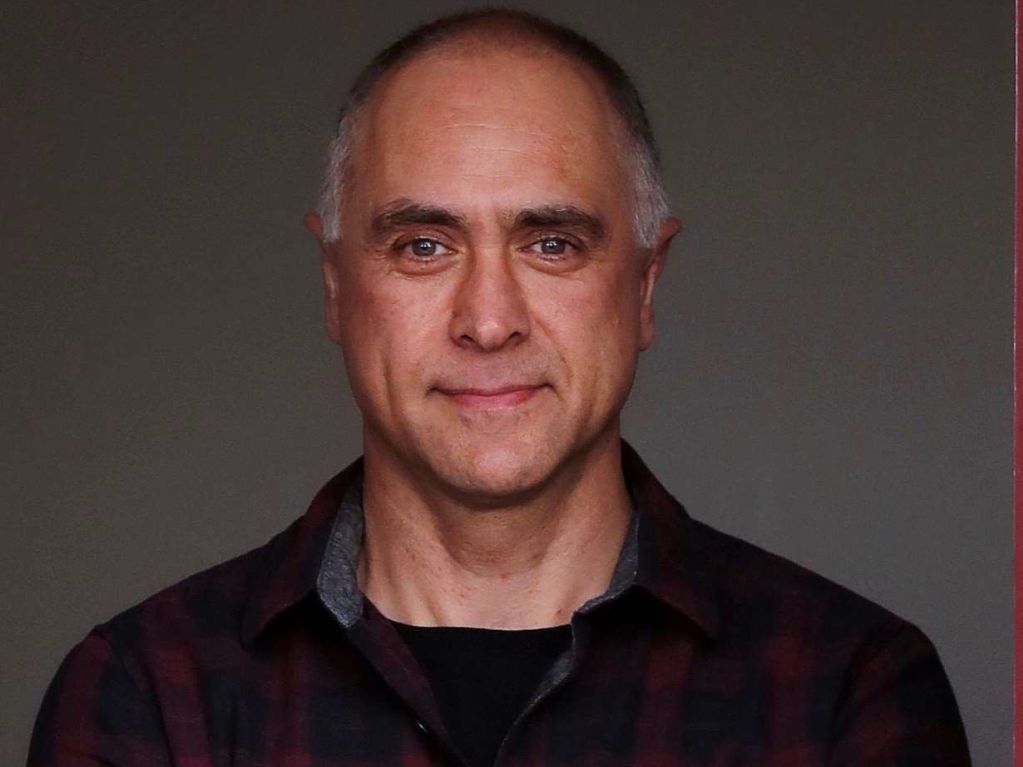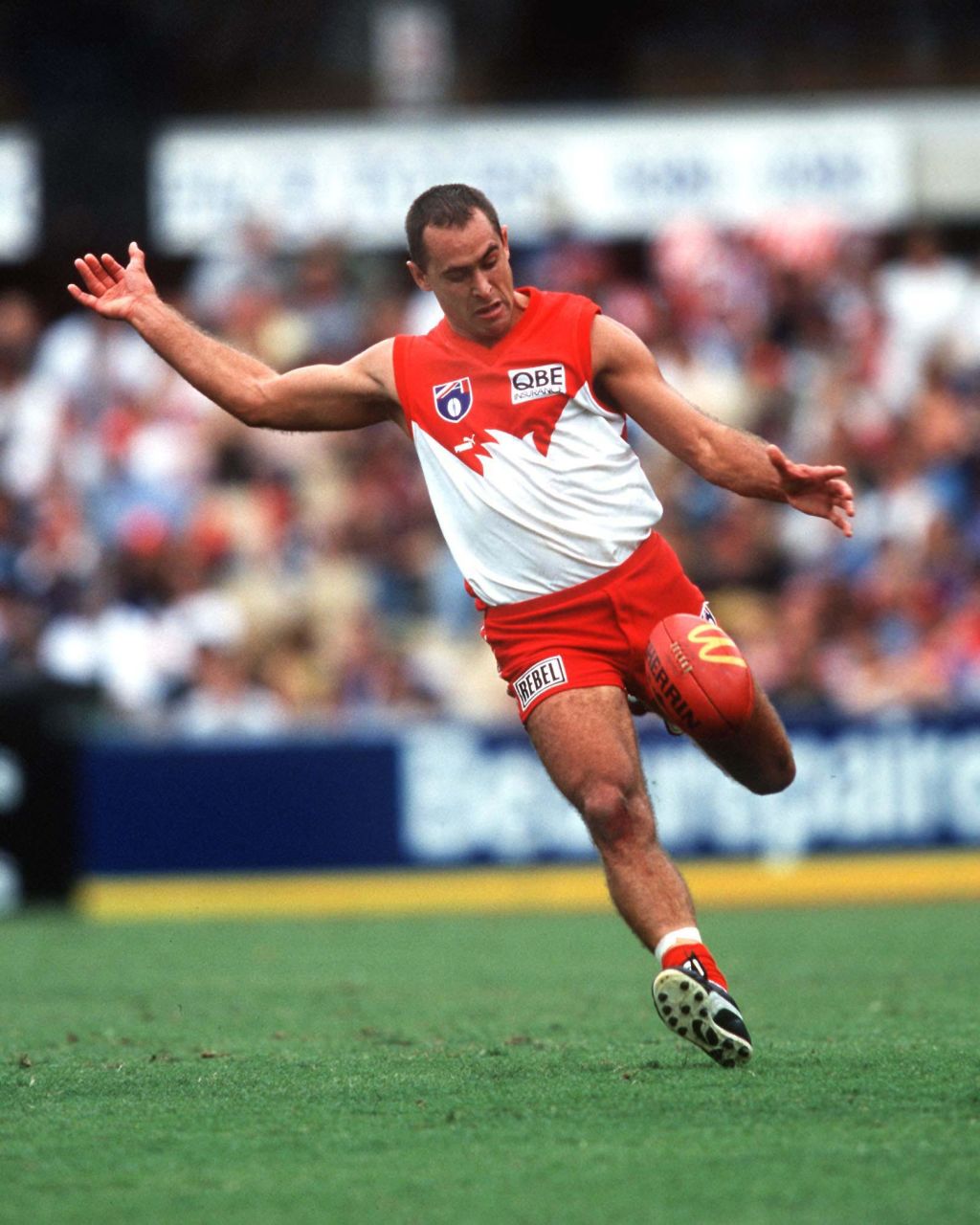Wayne Schwass: Former AFL premiership player is flying the flag of life

On the silver anniversary of his greatest footballing achievement, 1996 North Melbourne premiership player Wayne Schwass can reflect on both a special time on the annual AFL calendar and a significant moment in his own life.
Looking back to that day 25 years ago, the coveted medallion around his neck amid an outward show of what the mental health advocate has since declared to be fake joy while secretly harbouring suicidal thoughts, Schwass’ recollections come in two parts.
“I was able to cope with three mental health conditions – anxiety, depression and obsessive-compulsive disorder – and also be living in the middle of a four-year battle with suicidal ideation, but I was able to perform as an elite athlete because my training allowed me to do that,’’ says Schwass, who credits his ex-wife Rachel and long-time doctor Harry Unglik for their unwavering support.
“So, I look back on that with great pride that I was able to perform at a reasonably high level on that particular day while living with some really difficult personal challenges.
“But as I got older, I realised that I didn’t have the training or the education to make sense of what I was going through, and I certainly didn’t have a language that allowed me to communicate with my support network. They’re things I have now that I’m grateful for.’’
Thus, Schwass is not just talking but teaching and driving generational change through mental health education. His first major venture after retiring in 2002 from a 282-game career with the Kangaroos and Sydney was the not-for-profit Sunrise Foundation, which delivered mental health programs to more than 5000 Melbourne secondary school students from 2006-2010
Later, he founded PukaUp in 2017, a social enterprise that strives “to create the environments for every person to have authentic and genuine conversations about mental health and emotional well-being’’, and which is the vehicle for Schwass to pursue his passion for suicide prevention.
In conjunction with Melbourne University’s Centre for Wellbeing Science and technology partner alffie, PukaUp has developed the science-backed, evidence-based Foundations of Wellbeing program, a 10-module digital offering being rolled out in workplaces such as Reece Plumbing, and which in 10 hours provides the tools Schwass says it took him 26 years to build.
“It’s a purpose-built custom-made program for corporates in any industry of any size all around the country,’’ says Schwass, 52, describing it as an “upstream approach” that is preventative rather than reactive and more important than ever in this COVID-devastated world.

“We want to keep people healthy in the first place, and the way that we do that is by educating people so that they can develop their own language, ability and confidence to pro-actively look after mental health. If we can prevent people from getting in crisis, we’re going to prevent people from ending their lives, and that is our vision, and we are unapologetic about it: we want to end suicide completely.’’
Schwass no longer watches much footy, but this is grand final week, and the flag-winning Roo will be viewing from afar on Saturday, perhaps with a rare beer or two, and as a vastly different person from the 2006 podium version feeling a dark sense of panic. That, of course, was an era when men were taught to be tough and competitive but discouraged from being emotional and vulnerable.
Having endured shame and embarrassment in silence for so long, what Schwass describes as a “pressurised” industry is also, he believes, now more open, respectful, understanding and compassionate.
“As an industry, we’re getting better,’’ he says. “But we still have a significant amount of work because we can say with confidence that for every player that speaks openly, the number of players that haven’t spoken privately or publicly will be far greater.’’
- If you or anyone you know needs support call Lifeline on 131 114, or Beyond Blue on 1300 22 46 36.
We recommend
States
Capital Cities
Capital Cities - Rentals
Popular Areas
Allhomes
More









